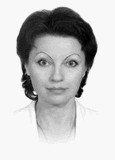Psychological well-being of sport gifted adolescents in an educational environment
Keywords:
sports gifted children, psychological well-being, educational environment, adolescents.Abstract
Objective of the study was to identify the relationship between indicators of the psychological well-being of sport gifted adolescents and the psychological safety of the educational environment in different types of schools.
Methods and structure of the study. 26 athletically gifted teenagers with achievements in the sports field, studying in general education (14 people) and specialized schools of physics, mathematics and natural sciences (12 people) took part in the scientific work. The methods used were “Psychological Well-Being Scale” by K. Riff, “Subjective Well-Being Scale” and “Psychological Safety of the School Educational Environment” by I.A. Baeva.
Results and conclusions. Athletically gifted adolescents are characterized by an average level of psychological and subjective well-being, protection from psychological violence, high satisfaction with the educational environment, and a low level of its referent significance. No reliably significant differences have been established between athletically gifted adolescents in specialized and general education environments, however, at the trend level, the level of well-being is higher in a specialized environment, and the level of psychological safety is higher in a general education environment. The results obtained are important for building individual psychological and pedagogical support for athletically gifted adolescents studying in various educational environments.
References
Kuzmin D.V. Samootsenka zdorovya sportsmenami i yeye psikhologicheskaya korrektsiya. PhD diss. St. Petersburg, 2013. 228 p.
Perfileva E.N. Zhiznennyye strategii razvivayushchegosya professionala v sfere fizicheskoy kultury i sporta. PhD diss. St. Petersburg, 2001. 241 p.
Rasskazova E.I., Leonov S.V., Enikolopova E.V. Psikhologicheskaya samoregulyatsiya, subyektivnoye blagopoluchiye i koping-strategii u professionalnykh sportsmenov. Teoreticheskaya i eksperimentalnaya psikhologiya. 2018. No. 11 (4). pp. 24-38.
Kharitonova I.V., Bosenko Yu.M., Raspopova A.S. Osobennosti vzaimosvyazi samootsenki fizicheskogo razvitiya, sotsialno-psikhologicheskoy adaptatsii, samootnosheniya i subyektivnogo blagopoluchiya sportsmenov podrostkovogo vozrasta. Vestnik Kostromskogo gosudarstvennogo universiteta. Seriya: Pedagogika. Psikhologiya. Sotsiokinetika. 2019. No. 25 (4). pp. 240-244.
Fransen K., McEwan D., Sarkar M. The impact of identity leadership on team functioning and well-being in team sport: Is psychological safety the missing link? Psychology of Sport and Exercise. 2020. Vol. 51. No. 101763. Available at: https://doi.org/10.1016/j.psychsport.2020.101763


